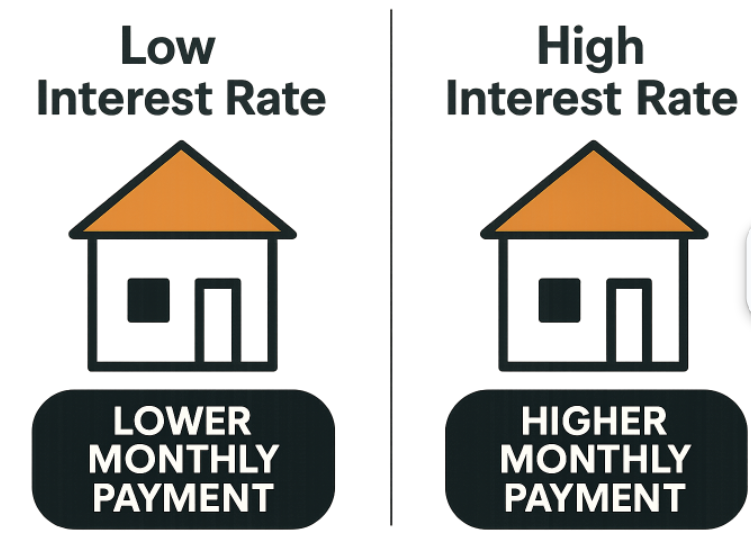When people nearby need something, they often search online for businesses. You want to be the one who shows up in those search results, right? Schema markup helps you stick out by telling search engines exactly what you offer, who you serve, and why customers can trust you.
At Matter Solutions, we guide service businesses in using these data structures the right way. Our experience with schema markup runs deep, and we’ve seen how it improves visibility in real search results.
In this article, we’ll cover local business schema basics and FAQ markup setup. You’ll also learn how to plan your schema types effectively for better visibility on search engines.
Ready to change how Google shows your business? Let’s begin.
What Is Local Business Schema?
Local business schema is a special type of code you add to your website. It tells search engines the exact details about your company, location, and services. For service companies, schema markup helps provide clear, accurate information for local search results.

In reality, schema works like a bridge between your website and Google’s computers. Instead of letting Google guess things, you hand over the facts about your business. That way, search results show clear details straight from you.
Now we’ll take a quick look at what a schema is and the rules it follows.
The Schema.org Standard Explained
Schema.org works like a shared dictionary that all search engines can read. Google, Microsoft, Yahoo, and Yandex built it together back in 2011. The system gives you clear terms to list your business name, address, and phone number (it’s the Rosetta Stone for your business info).
We’re talking about the LocalBusiness schema here, but you can also try other schema types to stick out more. For example, the Product schema shows prices and stock, Event schema highlights dates and places, and FAQ or HowTo schema brings answers into search. Even Article and Review schema types give Google extra context.
Here’s something interesting. Since every search engine reads those terms the same way, the details stay consistent. Plus, more than 45 million websites already use schema.org markup, and Google trusts the info instantly as everyone follows the same set of rules.
Displaying Correct Business Hours and More
Let’s get back to the LocalBusiness schema. This schema type makes it easy to share your exact hours with Google. For one, you can add holiday schedules, so people know right away if you’re open or closed. No more guessing games!

Think about a customer who wants to call your HVAC company at 9 PM on Sunday. If your hours aren’t clear, they might call at the wrong time and feel frustrated. Schema markup solves that problem by showing your actual hours before they even pick up the phone.
But what does Google do with that data? Well, they display those hours directly in search results. It leads to customers getting the right information fast, and they trust your business more. That trust also signals to search engines that your website is reliable.
Pro-Tip: Don’t stop at hours and contact details. Add extra fields like accepted payment types, service areas, or booking links in your LocalBusiness schema. These details make your listing more useful to customers and improve how complete your profile looks to Google.
How to Implement FAQ Schema Markup
You can implement FAQ schema markup by adding structured data in the form of JSON-LD to your webpage’s HTML. This code tells search engines which parts of your page are questions and which parts are answers.
The thing is, your potential clients often ask Google precise questions about your services. And FAQ schema markup helps a lot here because it shows search engines the exact questions people ask and the answers you’ve already prepared (like a menu board outside a cafe).
Honestly, when people see clear answers up front, they feel more confident about your expertise. This clarity makes your business turn up as both trustworthy and reliable.
Let’s walk through the process of setting up an FAQ schema for your service business.
Using JSON-LD for Structured Data
JSON-LD means JavaScript Object Notation for Linked Data. This data format is clean, easy to handle, and doesn’t mess with what people see on your site.
Here’s why the JSON-LD format is good for service businesses:
- Separate from Content: The JSON-LD code lives inside a script tag in your page’s head or body section. That means it never changes how your site looks. And unlike Microdata, which clutters up your HTML, JSON-LD keeps everything clean and easy to manage.
- Google’s Favorite: Google recommends using JSON-LD for structured data whenever you can, which makes it a safe long-term option. When you follow Google’s advice, your site stays compatible, and you avoid problems later on.
How to Get FAQ Rich Results
FAQ rich results show up as those expandable question boxes you often notice on Google’s search page. Adding FAQ schema markup gives your page a real shot at appearing there. But in truth, Google still makes the final call based on your site’s quality and usefulness.
One clear benefit of FAQ rich results is visibility. After all, these boxes take up more room on the search page, which means more attention for your business (you’re basically cutting in line here, but you’re doing it online).
For instance, imagine someone searching “How much does an HVAC service call cost?” Your clear answer could turn up right there in the results. Wouldn’t you love that?
Structuring Content on FAQ Pages
When you build an FAQ page, your questions and answers should always appear where visitors can read them. Frankly, it’s like a little signal that tells Google, “Hey, this is a question, and this right here is the answer.”
Instead of hiding extra text that no one ever sees (which search engines don’t like), you use schema markup to highlight the same content you’ve already shared with your visitors. This approach creates a better experience for everyone while keeping Google happy with your content.
Get your FAQ content ready for schema markup by taking these steps:
- Find Real Questions: Collect legitimate questions customers ask during sales calls, emails, or support requests, then check Google’s “People Also Ask” section. Real customer questions work better than made-up ones because they match what people search for.
- Write Helpful Answers: Each answer should solve the customer’s problem without pushing your services too hard. Google rewards helpful content with better visibility, so put value first and promotional language second in your responses.
- Keep Everything Together: All questions and answer pairs you want to mark up should live on one page, like a dedicated FAQ section. If you have everything in one spot, Google finds it easier to connect the dots and creates a smoother experience for visitors.
Is Article Schema Right for You?
Article schema works well for blog posts and news pieces. Sadly, it doesn’t fit the FAQ pages for service businesses. Article schema can help with content marketing and boost blog traffic, but FAQ schema focuses on real customer questions and often brings better leads.
That’s why we strongly recommend choosing the FAQ schema for service businesses and sticking with the article schema for content sites.
Pro Tip: Keep your FAQ answers short, ideally 40 to 60 words. Google often prefers concise responses for rich results, and shorter text increases the odds of your full answer showing up directly in search results without being cut off.
A Strategic Plan to Add Schema Markup
If you have a complete schema plan on your website, your business can attract more of the right customers. A full plan uses different schema types together, which builds trust, improves your visibility, and helps convert searches into real leads.
Alright, what’s the best way to stack these schema types together? Let’s find out.
Read More: Chucktown Website Design: Empowering Charleston Businesses with Expert Web Solutions




